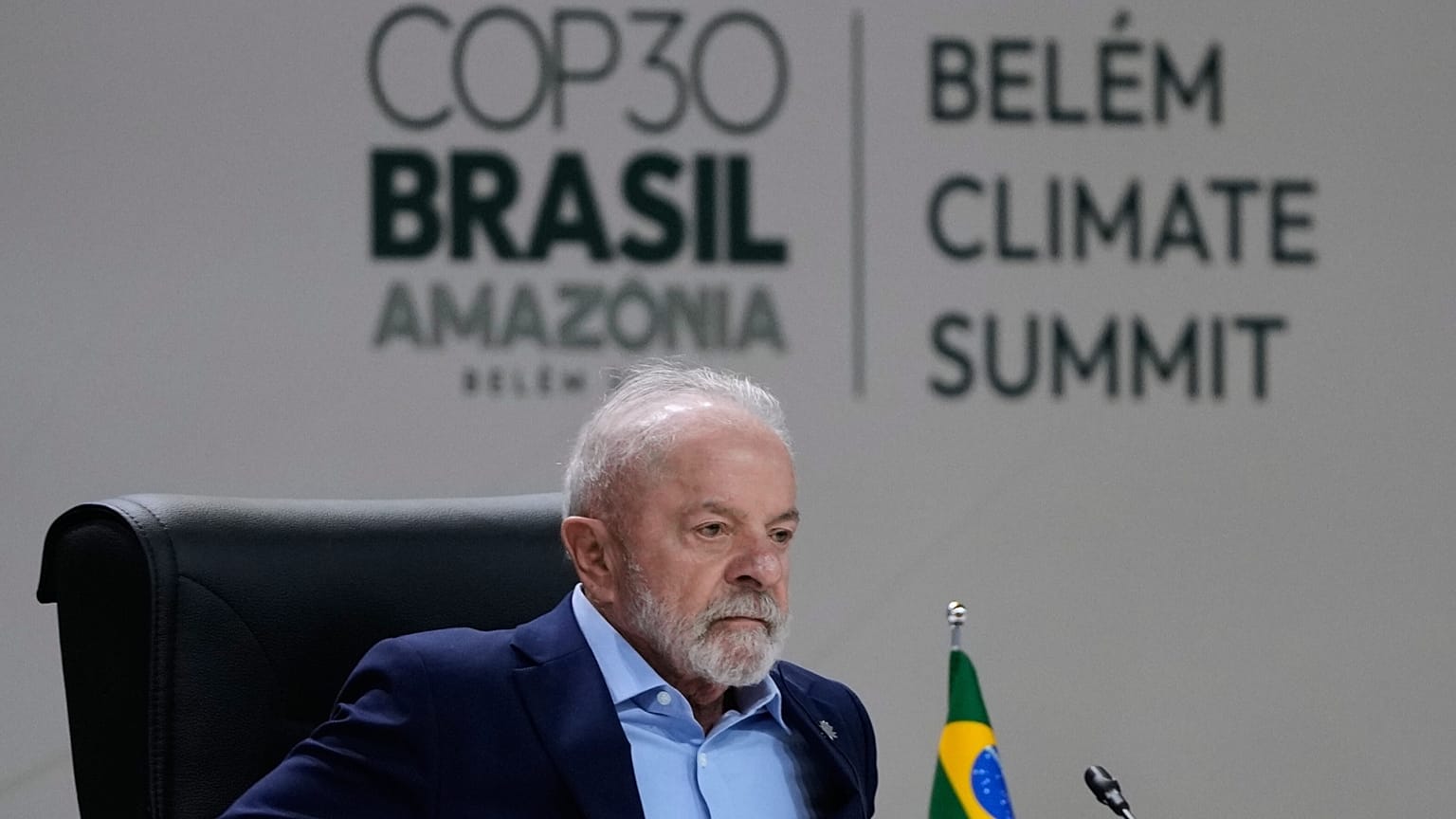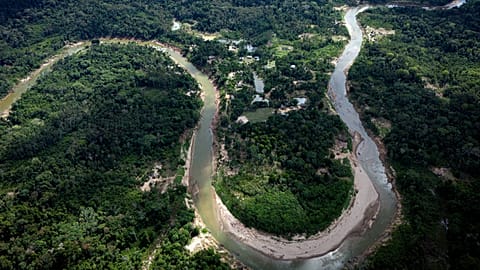A new report looks at the climate disinformation online ecosystem
A majority of the world's population believes in climate change policies. And yet, climate disinformation is still rife, especially online.
A new report from the watchdog Climate Action Against Disinformation (CAAD) has looked at climate disinformation in the lead-up to COP30, and the major players fueling it. It found a massive increase in disinformation related to the UN climate conference.
What does it look like?
87 per cent of the globe supports climate change policies, according to a 2024 survey. According to YouGov, 62 to 76 per cent of Europeans are worried about climate change.
But disinformation can still bring about skepticism.
There is a significant difference between misinformation and disinformation. Misinformation is false or out-of-context information that someone is presenting as fact. Disinformation, on the other hand, is intentionally false and meant to deceive its audience.
Earlier this year, CAAD and the Observatory for Information Integrity (OII) found a 267 per cent increase in COP-related disinformation from July to September.
They discovered about 14,000 examples online. One pertinent example was a post, created by generative artificial intelligence, of a reporter standing in a flooded city that resembles Belem, whereCOP30is taking place. The video has on the screen title of “THE TRUTH ABOUT COP30 IN BELÉM IN 2025” to hook viewers. However, the reporter, flood, and even the city were completely fictional.
A recent analysisfrom OII also found that COP30 was a recurring topic in Brazilian Telegram groups devoted to conspiracy theories. OII has identified over 285 mentions of COP30: attacking the conference itself, Belem, and climate solutions in general.
On the global stage, climate disinformation has also been promoted by the United States President Donald Trump. In September, hecalledclimate change the “biggest con job.”
Who is behind climate disinformation?
The new CAAD report looks into major players that contribute to the disinformationecosystem, derailing climate action by seeding doubt in audiences.
Companies that burn fossil fuels for energy and transportation, and large-scale agriculture (deemed Big Carbon) are some of the main perpetrators of climate disinformation.
“Big Carbon’s disinformation is designed to cause ordinary people to underestimate the strength of the scientific consensus on climate change,” the report says. “It is also causing people to underestimate the strength of solidarity in demanding action.”
However, tech companies are also at fault for allowing their messages to propagate without checks. These problems are not new and have plagued climate conferences previously.
A previousreportfrom CAAD found that in anticipation of COP28, fossil fuel companies paid up to $5 million (€4.3 million) for climate disinformation ads that appeared on Facebook. Shell, ExxonMobil, BP and TotalEnergies were the main funders, accounting for 98 per cent of ads.
“Spread rapidly and cheaply via online social media platforms and search engines (Big Tech), this disinformation is undermining policy and sabotaging action,” the new report says.
Climate disinformation discussion at COP
For the first time, this year’s climate conference will feature the Global Initiative for Information Integrity on Climate Change. This is a joint effort from the Brazilian Government, United Nations and UNESCO which is devoted to strengthening research and measures to address disinformation campaigns.
At the Leaders Summit on Nov 6, Brazilian President Luiz Inacio Lula da Silva and French President Emmanuel Macron both warned of the dangers of climate disinformation.
“Extremist forces fabricate fake news to obtain electoral gains and imprison future generations in an outdated model that perpetuates social and economic inequalities and environmental degradation,” said Lula.
This was echoed by Macron.
“Climate disinformation today threatens our democracies, the Paris agenda, and therefore our collective security,” he said. Earlier this year, a report found that French media was spreading climate disinformation, amplifying narratives that discredit climate science and climate solutions.
UN Secretary-General António Guterres also condemned the companies that are profiting from such disinformation.
“Too many corporations are making record profits from climate devastation – with billions spent on lobbying, deceiving the public and obstructing progress,” he said. “Too many leaders remain captive to these entrenched interests.”


















